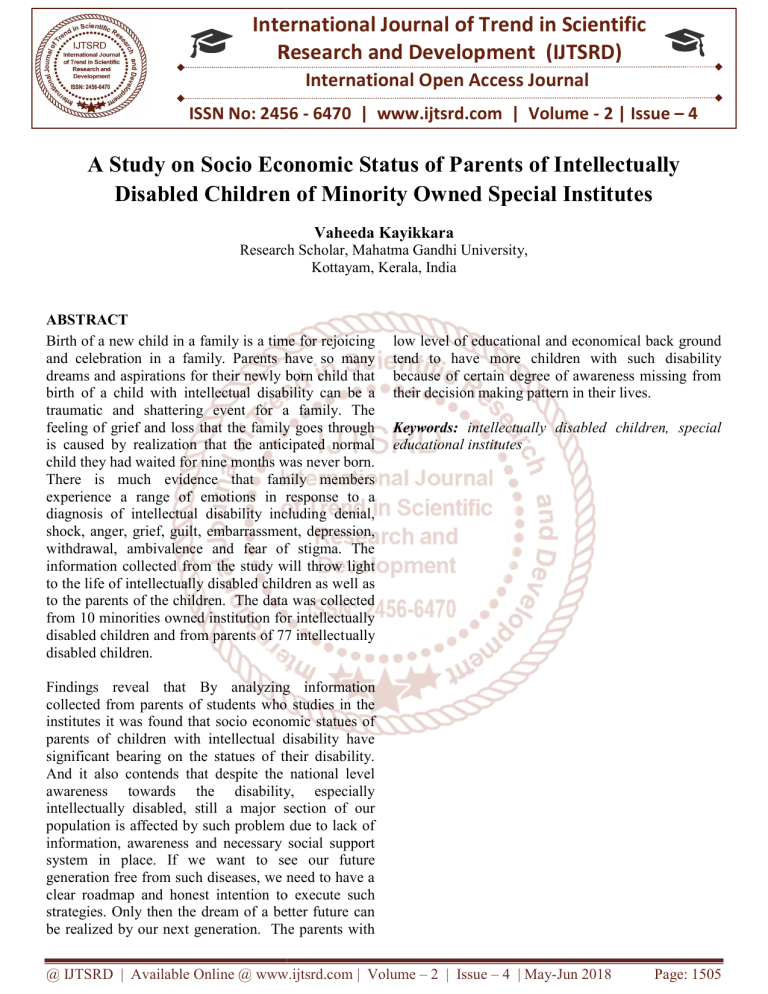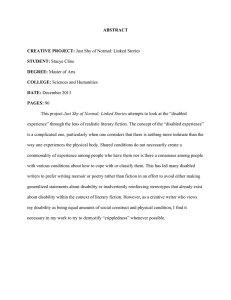
International Journal of Trend in Scientific
Research and Development (IJTSRD)
International Open Access Journal
ISSN No: 2456 - 6470 | www.ijtsrd.com | Volume - 2 | Issue – 4
A Study on Socio Economic Status of Parents ooff Intellectually
In
Disabled Children oof Minority Owned Special Institutes
Vaheeda Kayikkara
Research Scholar
Scholar, Mahatma Gandhi University,
Kottayam, Kerala, India
ABSTRACT
Birth of a new child in a family is a time for rejoicing
and celebration in a family. Parents have so many
dreams and aspirations for their newly born child that
birth of a child with intellectual disability can be a
traumatic and shattering event for a family. The
feeling of grief and loss that the family goes through
is caused by realization that the anticipated normal
child they had waited for nine months was never born.
There is muchh evidence that family members
experience a range of emotions in response to a
diagnosis of intellectual disability including denial,
shock, anger, grief, guilt, embarrassment, depression,
withdrawal, ambivalence and fear of stigma. The
information collected
ed from the study will throw light
to the life of intellectually disabled children as well as
to the parents of the children. The data was collected
from 10 minorities owned institution for intellectually
disabled children and from parents of 77 intellect
intellectually
disabled children.
low level
el of educational and economical back ground
tend to have more children with such disability
because of certain degree of awareness missing from
their decision making pattern in their lives.
Keywords: intellectually disabled children, special
educational institutes
Findings reveal that By analyzing information
collected from parents of students who studies in the
institutes it was found that socio economic statues of
parents of children with intellectual disability have
significant bearing on the statues of their disability.
And it also contends
ontends that despite the national level
awareness towards the disability, especially
intellectually disabled, still a major section of our
population is affected by such problem due to lack of
information, awareness and necessary social support
system in place.
lace. If we want to see our future
generation free from such diseases, we need to have a
clear roadmap and honest intention to execute such
strategies. Only then the dream of a better future can
be realized by our next generation. The parents with
@ IJTSRD | Available Online @ www.ijtsrd.com | Volume – 2 | Issue – 4 | May-Jun
Jun 2018
Page: 1505





